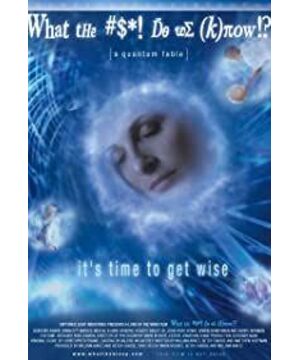At the beginning of the film, one of me appeared as an observer, and the other two of me were performing different stories at the same time. In the film, it is believed that based on quantum theory, in fact, things may have multiple "existences". Watching so many basketballs flashing and flashing at the same time, I also began to ask myself, after all, is there really such a number of players at the same time? I was the weakest in all subjects in high school in physics, and I was the worst in the college math entrance examination, but I still want to use my poor science knowledge to illustrate my views on this issue. There is a concept of "limit" in mathematics, which refers to "infinite approach". For example, we can think that each segment of a curve can be considered to be infinitely approaching a straight line after being divided infinitely. (Don't hit me if I remember correctly...) Based on this, if you think that when faced with a problem with several different possibilities, before the moment of your choice occurs, several different There is a possibility that the choice will happen at the next moment. If you push these "possible" parallel coexistences and make them infinitely approach the moment you choose to happen, it can even be considered as that moment. Does that mean that he does? Is it possible to coexist? Of course, this is only for the possibility of "choice" for the brain, or the whole paragraph is the nonsense of a person who doesn't understand anything at all. Then the judges have seen it and laughed, just ignore it. Okay~
When Columbus first discovered the New World, people on that "New World" actually only saw the strange ripples on the sea surface for a long time, but they couldn't see the existence of ships for a long time. I don't know if such an experience can really have such an intuitive existence in vision or other senses, but it reminds me of Zhang Defen's classic sentence, "Dear, there is no one else outside, only yourself." At least it is certain that we really cannot establish a specific and unique image or feeling for something we have not touched. Even if we can say "imagined", those imagined parts still come from the external events you know , From this point of view, this statement seems to be consistent with "material determines consciousness". Combined with the point mentioned by a later scientist that "the brain can't judge what you see and what you think - because they produce the same response in your brain", what they actually want to tell us may be "you You are using your experience and feeling to judge, but your experience and feeling may never be right.” When applied to personal life, perhaps when doing things, many problems do not need to be so complicated. It's not necessarily a bad thing on the surface. If you think about it a little deeper, it's "three people become a tiger." If Newton told us that apples fell up, and we looked at them a lot, everyone would really see apples just like that. Fly up? I don't know what happened during the Cultural Revolution. It's just that such a disaster, which is considered completely wrong today, has lasted for ten years. Behind the irrational madness of people, is it actually wrong and excessive trust?
There is a sentence in the movie, to the effect that the judgment of good or bad is actually the root of many problems. If there is no good, there is no such thing as bad at all. The issue of "standards" was once discussed in the class of the Second Specialty of History when discussing "the reason for freedom", discussing the modernization of modern China, and discussing the "sinicization" of the Manchu and Qing Dynasties. It is also about "freedom", which is regarded by Eastern societies as bounded freedom, as opposed to "collectivism", which cannot violate the collective "big self" in response to the individual's "small self", while in Western society, individual freedom It is the foundation, it is the fundamental, it is the "why" that does not need reasons and does not need to be defined; in the same discussion of sinicization, some people take the connection and jurisdiction as the benchmark, and some people take the comparison between non-Han civilization and Han civilization as the basis, but in fact, we use Yes, but they are all the same word, the only difference is the standard. The development of industrial civilization has set us GDP, degree of industrialization, and per capita income as the “good” standards for measuring whether a country is developing, so we have applied this unified standard into our own construction; society has set us "Three highs" are the "good" to develop in this society, and the standard to live "good", so everyone competes to "go to the 'high'" and compete for the little bit or position, Or salary, or reputation, etc. resources. What if there are no such standards? In fact, it has always been someone else's standard for you, never your standard, and it is never unchangeable. The so-called "standard" may have been diversified.
The movie puts forward a point at the end-every one of us is God, because in fact, your future exists in your brain, and all development is controlled by you in the end. It is obviously difficult to accept such a problem that has penetrated deeply into a person's worldview and values in a short period of time, but it is just like the mode of action of people's "peptides" and "hypothalamus" in the film and the "addiction" they cause. As mentioned in the description of the first paragraph of the disease, in fact, we will all selectively receive information, just like in the communication model, the channel is indispensable for the source to reach the destination, and it will definitely encounter "noise", but everyone The way you are used to processing information is different, and the information you receive at the end will also be different, and the way you are most accustomed to processing may be the "addiction" in the film. In the end, I found out that "things are not exactly what you think", so, although I don't believe that people can really change the objective existence so far, I absolutely believe that the power of belief can be transformed into practical I also believe that everyone can change their mentality in the face of objective existence and find their own balance.
View more about What the #$*! Do We (K)now!? reviews











